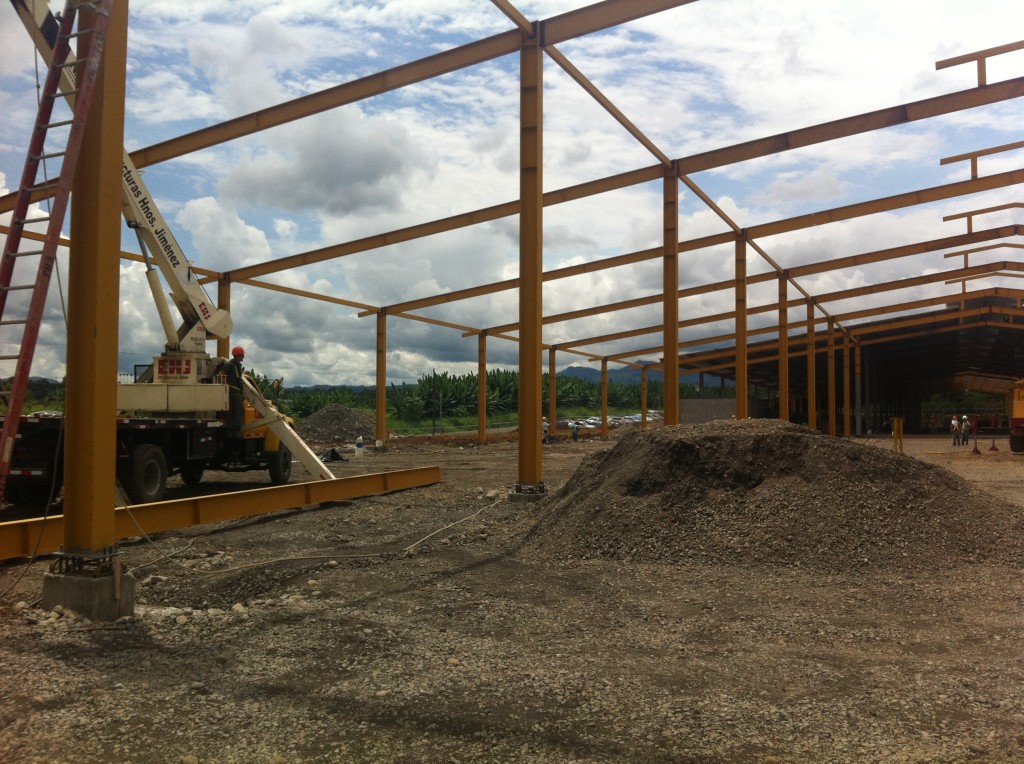BENEFITS OF USING PIR AND PIR INSULATED SANDWICH PANELS IN AGRICULTURE
In this blog post, we will discuss the advantages of using PIR or PUR insulated sandwich panels in the construction of agro-industrial complexes.
WHAT DOES AGRO-INDUSTRIAL BUILDING NEED?
For sure, the high speed of construction, low-cost, and trouble-free operation for at least 20 years.
Contemporary market conditions impose specific requirements for the energy efficiency of such structures. Since the majority of heat or cold loss occurs through the building envelope, it contributes directly to increase energy costs that consequently lead to higher costs of production.
IMPORTANT REQUIREMENTS FOR VEGETABLE AND FRUIT STORAGE
Fruit and vegetable storage has strict requirements for temperature and humidity levels. For example, potatoes, eggplant, cucumbers, tomatoes, and peppers are stored at a temperature from 0 to + 8 °C. And this temperature regime should be continuously maintained all the time.
It is necessary to build sealed greenhouses, with a controlled or modified atmosphere with low oxygen content to prevent spoilage of products. As a result, it will increase the refrigerated life of products from 2-3 to 6-8 months.
In addition, the final cost of products is influenced by initial production costs. To cut costs, reduce the building material of the construction. Therefore, agricultural buildings should be built from a lightweight and durable material having a low coefficient of thermal conductivity.
ALL-WHEATHER MATERIAL FOR CONSTRUCTION
The speed of construction is influenced by atmospheric phenomena — rain, snow, and the so-called “human factor”. Consequently, the material used to build a vegetable store or an animal farm must be waterproof and all-weather, and all the processes simple and straightforward for installers.
WHAT ARE THE ADVANTAGES OF A PIR-INSULATED SANDWICH PANEL?
The sandwich panel consists of three layers: external metal support, the insulation layer, and internal metal support.
PIR is a type of flame retardant polyurethane foams, where the so-called thermosetting polymer is polyisocyanurate. Under high temperatures, it prevents the spread of flames. Therefore, using PIR panels, you can erect structures with particularly stringent requirements for fire resistance. It is the first advantage of using PIR-insulated sandwich panels for construction.
Use insulated sandwich panels made of polyurethane foam to build in the shortest possible time for fruit storage, a cold room, or a processing plant. The resistance of polyurethane foam to moisture allows you to install it, regardless of the time of year.
Thanks to their lower weight, PIR panels are easier to manipulate at the construction site.
The processing of meat, fish, vegetables, and fruit requires the cleanest environment possible. Sandwich panels are moisture-resistant: they are chemically inert and biologically stable. They do not decay with time. They can resist acid and alkaline environments. It does not rot and is not susceptible to the harmful effects of rodents and insects. Moreover, here you can find solutions for an aggressive cold room environment built using insulating metal panels.
The most crucial advantage of PUR foam sandwich panels is the hermetic joint, which does not require any further connectors for assembly.
CONCLUSION
The advantages of using PIR or PUR insulated sandwich panels confirm that they have no competitors. Using PUR insulated panels significantly speeds up the construction of agricultural complexes up. Insulated panels have a long life, are easy to install, and allow to build of any agro-industrial structure, which in the future will not require repair, therefore, the use of insulated panels reduces all the operating costs in the long term.
Agriculture and farming may create aggressive environments, we can advise you on the best solution for your specific need; insulation made by PIR or PUR foam, ranging from 25 to 240mm of insulating thickness. The standard coating on the external side is Polyester or Plastisol or HPS200, on the internal side, we recommend aluminum or fiberglass reinforced fiber.

 WhatsApp Us
WhatsApp Us
0 Comments Leave a comment